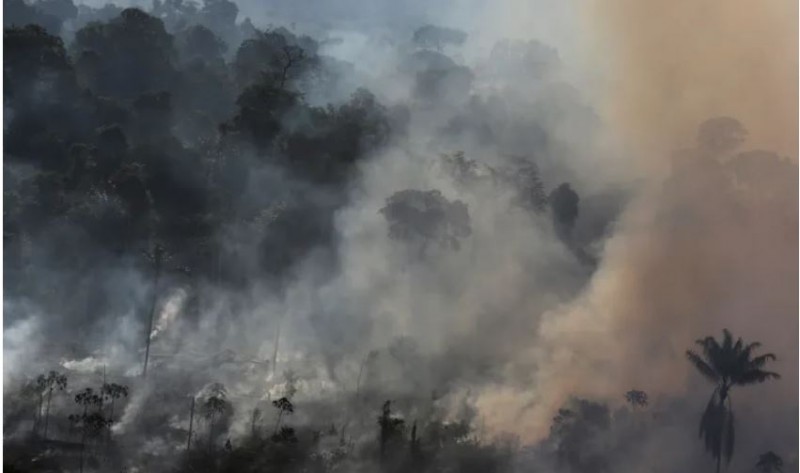
TAIPEI: According to a report from the UK-based Business and Human Rights Resource Centre, protests against corporate abuses are frequently greeted with state-sponsored violence in India and Brazil, making them two of the most hazardous countries in the world for labour and human rights advocates. The report also said, Brazil came in first place with 63 attacks against activists reported in 2022, followed by India with 54 and Mexico with 44.
As per the report cited by Aljazeera, other nations on the list include Cambodia, which had 40 recorded attacks in 2022, the Philippines, which had 32 attacks, and Honduras, which had 31 attacks. Other nations on the list included Belarus, Peru, Colombia, and Uganda. The report also shows that more than 550 attacks were reported globally in 2022, of which 75% were related to individuals defending land, climate, or environmental rights and 1/5 were against Indigenous activists.
Although it was challenging to pin down the attackers in 235 incidents, or roughly 43% of cases, attacks were linked to multinational corporations or their subsidiaries, the report also named mining as the most dangerous industry with 30% attacks, or about 165 attacks.
The report included corporations including JSW Steel of India, Otterlo Business Corp. of the United Arab Emirates, TotalEnergies, a French oil company, Inversiones los Pinares, and NagaWorld, a Cambodian gaming company.
The repor also mentioned how many companies in India were involved in attacks. Speaking of JSW Steel in India, environmentalists have fought against the company's ambitions to build a steel plant in Odisha since 2018 because it would be dangerous to the region's ecology and people' health. The plant might potentially threaten to replace established sectors like betel vine growing, according to activists.
The government of Odisha and POSCO of South Korea signed a Memorandum of Understanding in June 2005 for the establishment of a 12 MTPA Integrated Steel Plant in the Jagatsinghpur district of Odisha with a Captive Port, according to a statement from JSW Steel in response to the Business & Human Rights Resource Centre. Across eight revenue villages, the project needed 4004 acres of land, including 437 acres of private land.
In May 2011, the Central Government authorised clearing of the forest. The District Administration and IDCO (Odisha Industrial Infrastructure Development Corporation), a state government agency, then uprooted the betel vines to clear the area of encroachment. The land that had been cleared of encroachment was given to IDCO.
In 2017, JSW proposed to build a steel mill on a smaller plot of land (3160 acres) with a similar capacity. Only 2.26 Ac of the 3160 Ac total required for the project is private land. The landowners have already agreed to the district administration's request to transfer their private property. After receiving approval from the MoEF&CC to use the forest area for the construction of the steel plant, the district administration began the process of alienating public land, it said.
However, it should be noted that in any country, whether developed, developing, or underdeveloped, nobody has the right to take the law into their own hands; if such a situation arises, the police maintain the law and order of the society, JSW Steel said. "It won't be prudent on the part of the company to comment on the police actions which is beyond JSW's control," the company said.